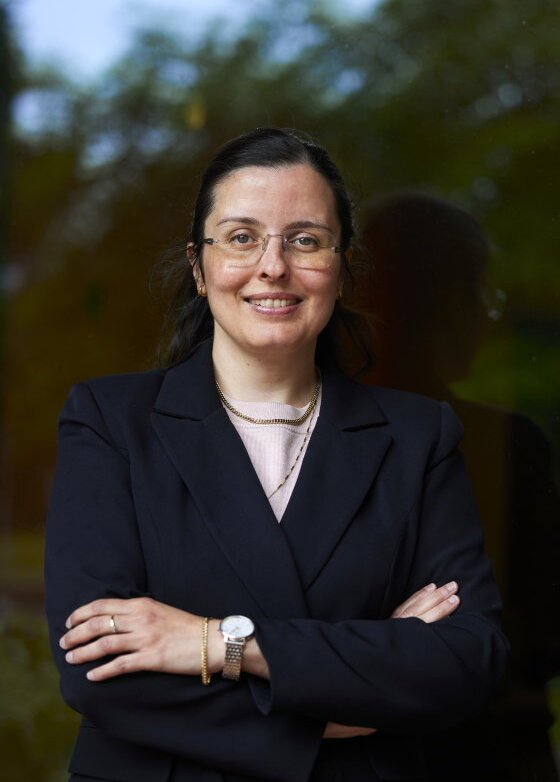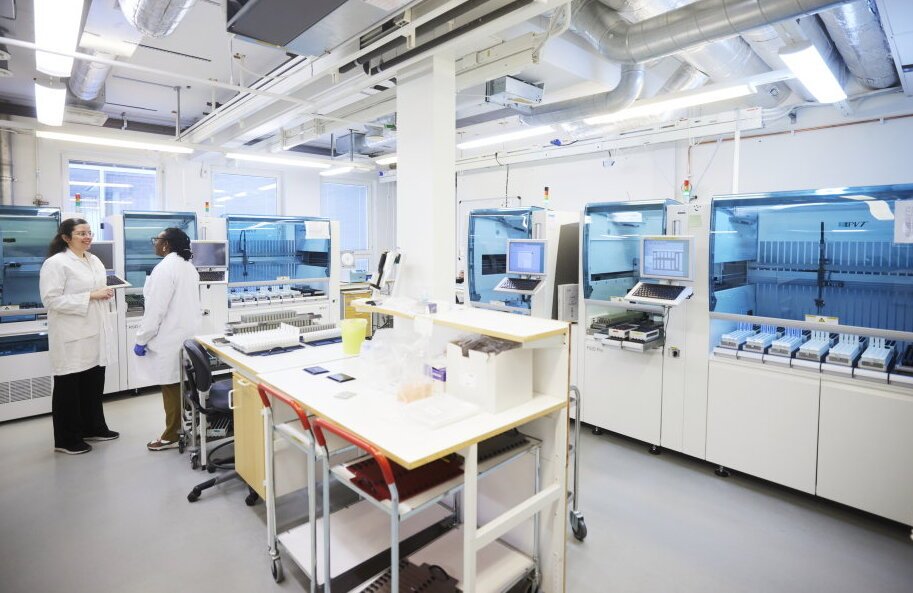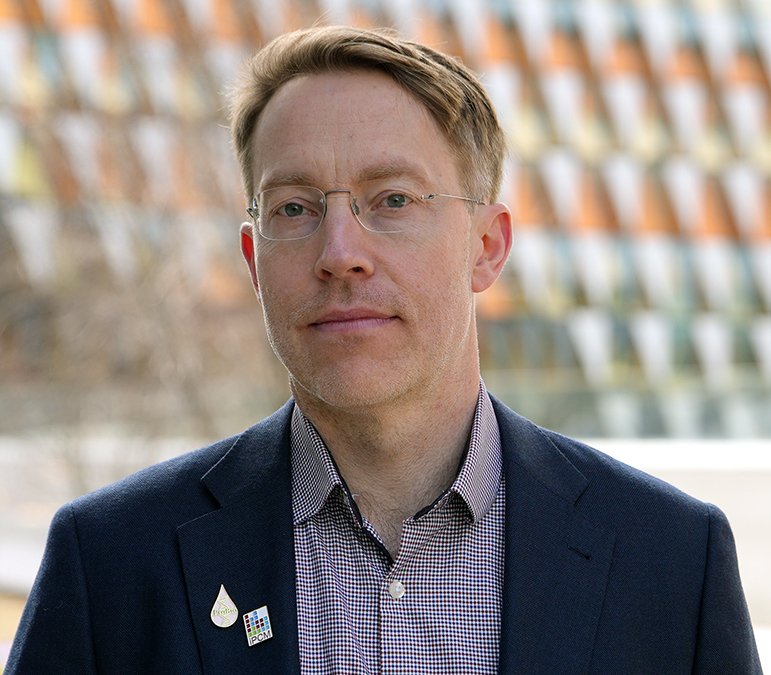KI Biobank in Solna turns 20 this year. No fewer than 8.5 million samples from 750,000 individuals are preserved in its freezers. "The biobank is absolutely crucial to meeting tomorrow's research needs," says Sanela Kjellqvist, head of the KI Biobank.
It was 20 years ago when the first freezers were carried into what is today Karolinska Institutet's biobank in Solna. The freezers proved so heavy that the floor had to be reinforced.
Since then, the biobank has grown from a few freezers to a high-tech laboratory that currently holds 8.5 million samples from 750,000 individuals.
Sanela Kjellqvist, who heads the core facility, considers the biobank an essential part of the university and absolutely crucial to meeting the research needs of tomorrow:

"The more we get closer and closer to precision medicine, the more the research stems from human samples," says Sanela Kjellqvist. "Each research group cannot handle its own samples individually - it'd be too risky and very expensive."
So what is a biobank? Sanela Kjellqvist describes it as an organisation that handles different kinds of human sample for the purposes of medical research or care and treatment.
Regulated in Swedish law
The biobank both stores these samples and handles the data associated with them. Its operations are strictly controlled by Swedish law to ensure that the samples are used ethically.
"It's important to have a structure and organisation able to handle everything from traceability at sample level to sample quality," she says. "The KI biobank is unique in many ways, mainly because we are scientifically integrated and work closely with researchers."
Some of the samples are stored at room temperature but most are kept at -80 degrees. Cells that researchers want to be able to do further work on and refine are stored in liquid nitrogen at -190 degrees.
All researchers wanting to use the biobank must present an ethically approved application and the written consent of the study participants.
Around-the-clock staff
Security is also very important. Last winter, some freezers malfunctioned in another part of Karolinska Institutet, destroying thousands of samples - a devastating loss for the researchers and their work.

To ensure that this cannot occur at the KI biobank, all its freezers are connected to an alarm system with a clearly defined chain of responsibility.
"There are staff on standby around the clock able to evacuate the samples if anything were to happen," says Kjellqvist.
The biobank currently has a staff of 22. The IT section, which handles things like traceability, has been greatly expanded, as have the parts that handle regulatory and laboratory matters.
"I'd like to give a special mention to our incredibly skilled staff," she continues. "We're here to support the researchers and we aim to have even more use made of our samples. They're a goldmine for researchers."
Users' voices
Kamila Czene: "Absolutely indispensable to our studies"

Kamila Czene is professor at the Department of Medical Epidemiology and Biostatistics, Karolinska Institutet. Her research group studies risk factors for breast cancer and its prognosis.
Her research builds on the ability to integrate multiple data sources - clinical, genetic and molecular data, national registries, surveys and biobank data.
"KI's biobank is absolutely indispensable to our studies," she says. "We've collected blood samples from around 80,000 women, women who have had mammography scans, and women who have been diagnosed with breast cancer. We've been able to use the biobank to identify genetic and epigenetic markers for breast cancer and analyse proteins and microRNA in plasma samples."
Professor Czene stresses that the biobank more than just a storage space for samples - it also ensures future research opportunities and facilitates international collaboration.
"The ability to return to stored samples when new research questions or techniques arise is vital to ongoing and future research," she says.
Christian Rück: "Possesses many important skills"

Christian Rück is professor at the Department of Clinical Neuroscience , Karolinska Institutet, and a consultant at Psychiatry South West in Stockholm. One focus of his research is risk factors and new therapies for mental illness and suicide.
His research group's sample collections in the biobank concern depression, anxiety, obsessive-compulsive disorder and suicide. According to Christian Rück, the biobank is absolutely essential to their ability to handle and store their samples securely.
"We used to have our own freezer in Flemingsberg," he says. "It really is a relief that our samples are in the capable hands of people with the proper competencies, as they are invaluable to us. Knowing everything about sample management is usually beyond the skills set of your everyday researcher. The biobank staff also have other useful abilities when it comes to releasing samples and contractual procedures."
Johan Lindberg: "Helped us to establish the optimal way of working"

Johan Lindberg is senior researcher at the Department of Medical Epidemiology and Biostatistics, Karolinska Institutet. His research involves trying to figure out the best treatments for individual cancer patients by looking at the mutations the exist in their tumour cells.
Every week, biological material is sent from cancer patients to the biobank, where the personnel take care of it and extract DNA and other substances.
Dr Lindberg's team then prepares the DNA for large-scale DNA sequencing in order to pinpoint the mutations in the cancer cells. The information thus gleaned is then used in large clinical drug studies.
"Without the KI biobank, it'd be impossible to do the kinds of clinical study that my team works with, such as the ProBio study in which we assess whether mutations in the cancer cells can be used to select the right treatment for patients with metastasised prostate cancer," he says.
Is there anything you think more people should know about the KI biobank?
"I think lots of researchers go to the biobank's website, skim through it and decide that it can't help them with their study," says Dr Lindberg. "If they do this, they miss the fact that the staff are willing to meet the users' needs and establish new flows. When the ProBio study began, they helped us establish the optimal way of processing the sample types we collect. It was very much appreciated."






